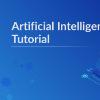The emergence of Large Language Models (LLMs) has achieved tremendous success in the field of Natural Language Processing owing to diverse training paradigms that empower LLMs to effectively capture intricate linguistic patterns and semantic representations. In particular, the recent "pre-train, prompt and predict" training paradigm has attracted significant attention as an approach for learning generalizable models with limited labeled data. In line with this advancement, these training paradigms have recently been adapted to the recommendation domain and are seen as a promising direction in both academia and industry. This half-day tutorial aims to provide a thorough understanding of extracting and transferring knowledge from pre-trained models learned through different training paradigms to improve recommender systems from various perspectives, such as generality, sparsity, effectiveness and trustworthiness. In this tutorial, we first introduce the basic concepts and a generic architecture of the language modeling paradigm for recommendation purposes. Then, we focus on recent advancements in adapting LLM-related training strategies and optimization objectives for different recommendation tasks. After that, we will systematically introduce ethical issues in LLM-based recommender systems and discuss possible approaches to assessing and mitigating them. We will also summarize the relevant datasets, evaluation metrics, and an empirical study on the recommendation performance of training paradigms. Finally, we will conclude the tutorial with a discussion of open challenges and future directions.
翻译:暂无翻译




